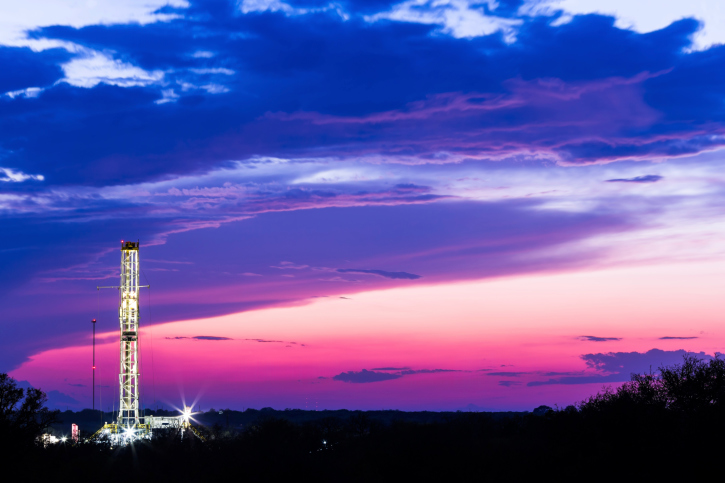In compliance Senate Bill 181, titled, “Protect Public Welfare Oil And Gas Operations,” the Colorado Oil and Gas Conservation Commission (COGCC) has finalized new rules limiting oil and gas operations in the state.
SB 181, signed into law by Gov. Jared Polis in April 2019, fundamentally changed COGCC’s mission, replacing its previous mandate to foster oil and gas development in the state with a mission to regulate oil and gas operations, in order to protect public health, safety, welfare, the environment and wildlife resources.
For years some Colorado cities and counties had tried unsuccessfully to ban or restrict oil and gas drilling through municipal ordinances and lawsuits. In addition, in 2018 voters rejected a ballot proposal to keep new wells at least 2,500 feet from homes, schools, waterways, and other areas. After 2018, when Democrats took control of both houses of the Colorado General Assembly and the Governorship, they pushed through the law changing COGCC’s mission.
The new rules were delayed due to the government shutdowns resulting from the Coronavirus pandemic.
Drilling Set Backs, Flaring Stopped
The new rules include a requirement that most new drilling be set back at least 2,000 feet from homes and schools. Previously the set-back had been 500 feet. In addition, the commission will now consider “environmental justice” concerns when it makes permitting and operation decisions. The new rules also establish a process through which members of the public can challenge oil and gas operations they believe will harm them, set strict protections for wildlife habitat, and, except in emergency situations, ban the flaring of excess natural gas from oil and gas operations. Alaska is the only other state in the nation that bans flaring of natural gas.
The new rules will go into effect Jan. 15, 2021.
Harmful Economic, Budgetary Impact Projected
In advance of SB 181’s passage, the Consumer Energy Alliance (CEA) said the law would have a profoundly negative impact on residents, Colorado’s economy, and state and local budgets.
A CEA report showed lower natural gas prices in Colorado, due in large part to fracking, saved residents and businesses almost $12.4 billion from 2006 to 2016.
“The economic benefits of the oil and gas industry can be felt across the state—supporting jobs in 50 of Colorado’s 64 counties,” the CEA report noted. “In 2014, Colorado producers contributed almost $1.2 billion to the state’s coffers via property, income and severance taxes in addition to public land leases and royalties. This money goes to funding public safety, streets and highways, our state’s schools and other projects that benefit communities statewide.”
“On average,” the report continued, “each Colorado resident spent $2,681 for their energy needs in 2016. While this may not seem like a lot to some, it is for the more than 10 percent of Coloradoans who live in poverty. To give it some perspective, that is more than 564,000 men, women and children—enough people to fill Mile High Stadium almost 8 times. And for those people living at or below the poverty line that translates to at least 22 percent of their income going toward energy expenses.”
Moreover, the oil and natural gas industries supported about 232,000 jobs in Colorado in 2015, producing more than $23 billion in labor income and $31 billion in total economic impact, according to a 2017 American Petroleum Institute study prepared by PricewaterhouseCoopers.
‘Toughest … Regulations in the Country’
The energy industry actively fought SB 181. Having lost that battle it provided input into the rule making process, but ultimately the rules flowing from SB 181 will end up hampering energy production in the state, Dan Haley, president of the Colorado Oil and Gas Association, indicated a statement.
“This has been a long, exhaustive and exhausting process for all involved,” said Haley. “Colorado now undoubtedly has the toughest oil and natural gas development regulations in the country.
“Commissioners approved unprecedented 2,000-foot siting requirements, largely based on the precautionary principle, as no scientific evidence was presented that showed such an extreme distance was necessary,” Haley continued. “In fact, all of the testimony from toxicologists during the hearings included data showing that the previous 500-foot setback was protective of public health, safety, and the environment.”
‘Untethered Discretion’
According to the Denver Channel, the American Petroleum Institute Colorado sent it a statement saying the new rules lack clarity on key points and give too much permitting discretion to COGCC’s politically appointed commission.
“The breadth and complexity of this regulatory overhaul has been far-reaching and as a result, there remain concerns with a number of the regulations adopted today, including a still-ambiguous setback standard which regrettably lacks clarity for operators or the communities in which natural gas and oil are developed,” API’s statement said. “The relevant rules will likely give untethered discretion to the Director and the commission regarding when a permit will be approved or rejected, which falls short of Governor Polis’ assurance that Senate Bill 181 would provide certainty to our state.”
H. Sterling Burnett, Ph.D.(hsburnett@heartland.org) is the managing editor of Environment & Climate News.
Internet Info
Tim Benson, “Research & Commentary: Oil and Gas Regulation Overhaul Bill Would Have Deleterious Effect on Colorado Economy,” The Heartland Institute, March 12, 2019: https://www.heartland.org/publications-resources/publications/research–commentary-oil-and-gas-regulation-overhaul-bill-would-have-deleterious-effect-on-colorado-economy
